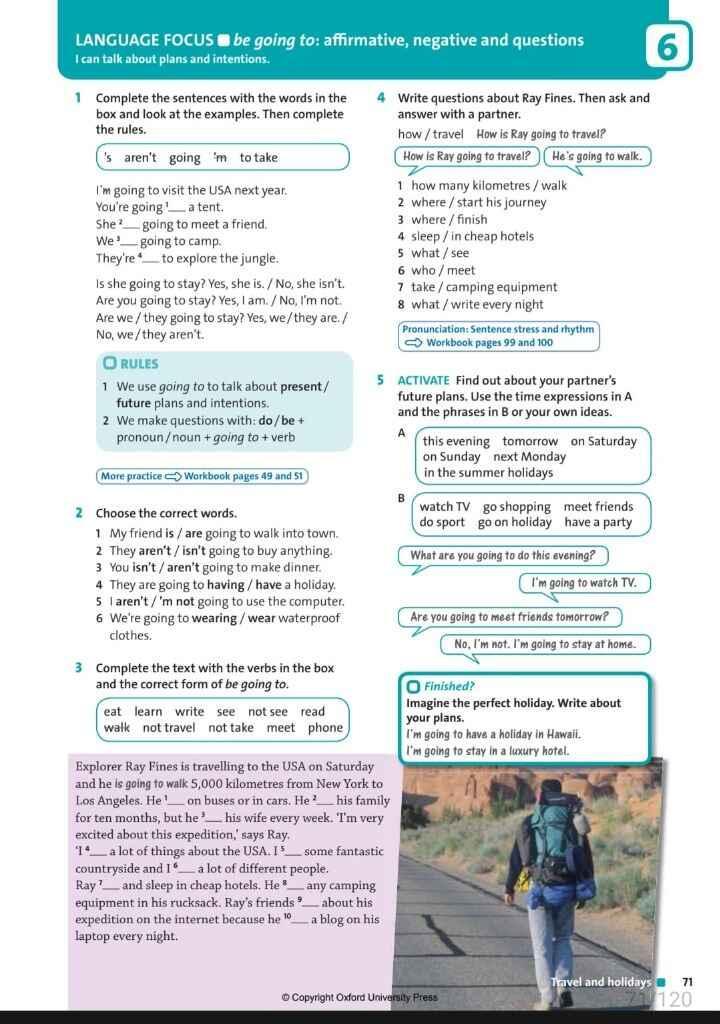Англиский язык пожалуйста помогите

Ответы
Ответ:
I. 1. You are going to take a tent. 2. She is going to take a tent. 3. We aren't going to camp. 4. They're going to explore the jungle
II. 1. is going ... 2. aren't going ... 3. aren't going ... 4. are having
5. I'm not going ... 6. We're going to wear ...
III. 1. ..isn't going to travel.. 2. is not going to see.. 3. is going to phone ..
4. is going to learn.. 5. is going to see.. 6. is going to meet 7. is going to walk .. 8. is not going to take.. 9. are going to read.. 10. is going to write
IV. 1. How many kilometres is he going to walk? - He is going to walk 5000 kilometres.
2.Where is he going to start his journey? -He is going to start his journey from New York.
3. Where is he going to finish? - He is going to finish in Los Angeles.
4. Is he going to sleep in cheap hotels? - Yes. he is.
5. What is he going to see? - He is going to see some fantastic countryside.
6. Who is he going to meet? - He is going to meet different people/
7. Is he going to take camping equipment? - No, he isn't
8. What is he going to write every night? - He is going to write his blog
Объяснение: